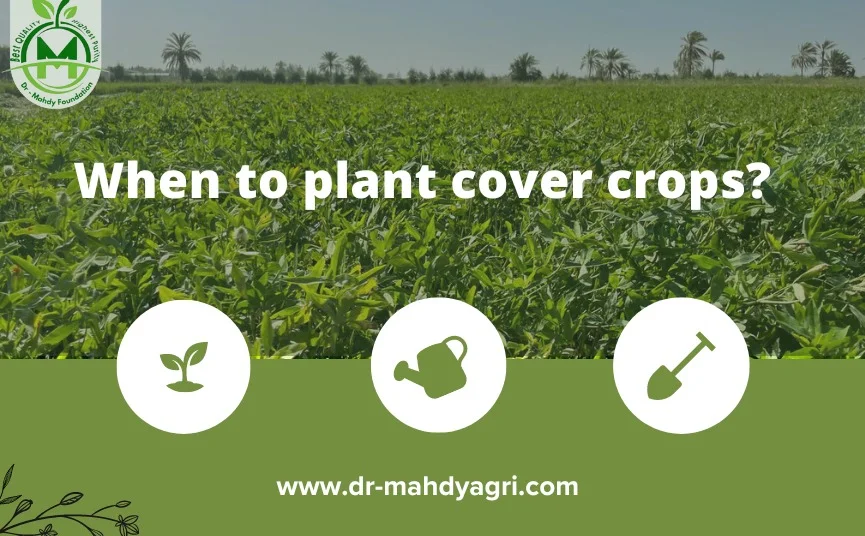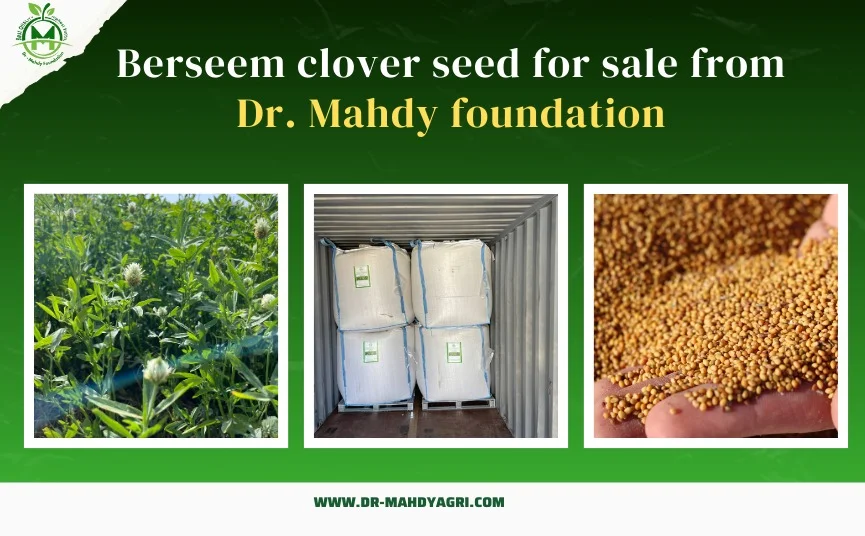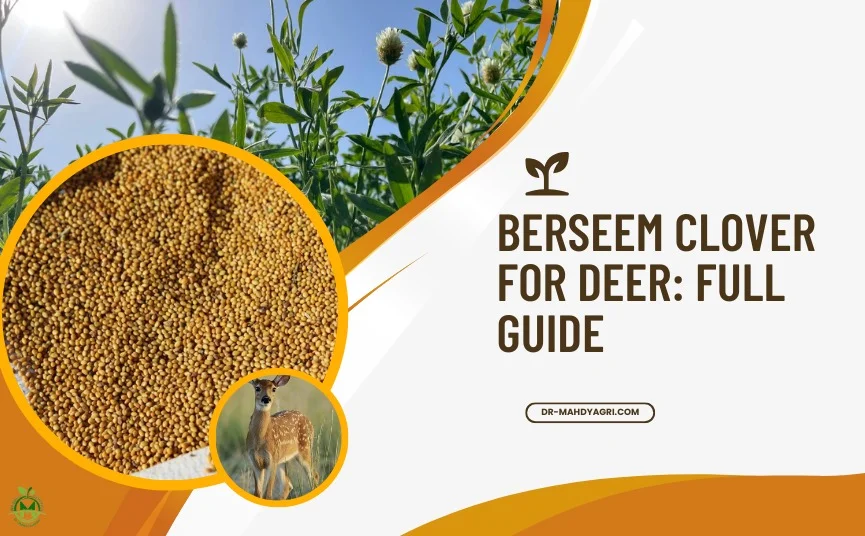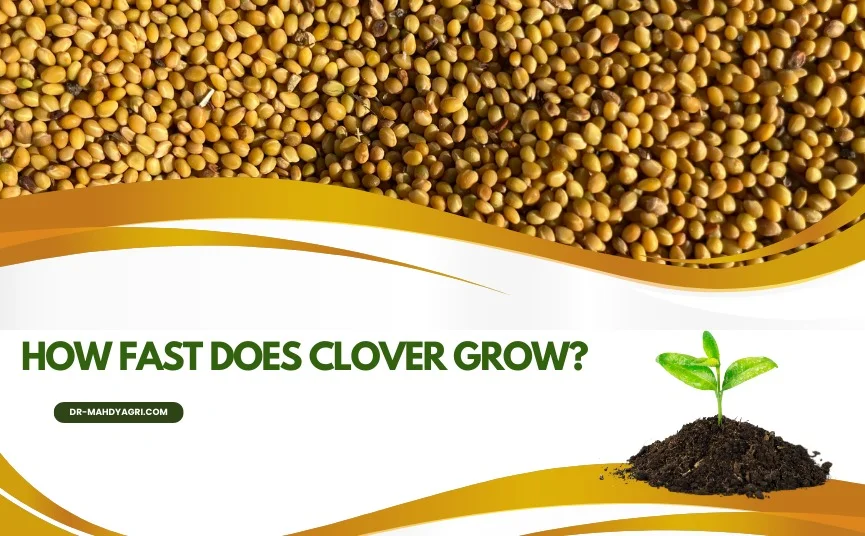

Cover crops are the most important in terms of sustainable agriculture. These wonder plants provide numerous benefits, including soil health, weed suppression, nitrogen fixation, and valuable forage for livestock. Berseem clover (Trifolium alexandrinum) and balansa clover (Trifolium michelianum) are two cover crop champions with distinct characteristics. However, with two strong contenders, how do you select the winner for your land?
This comprehensive guide delves deeply into the world of berseem clover vs. balansa clover. We will examine their specific strengths and weaknesses, optimal planting conditions, and suitability for a variety of applications, including grazing and soil improvement. By the end, you will be able to make an informed decision about the best clover cover crop to improve your agricultural practices.
Berseem Clover: A High-Yielding Annual Powerhouse
Berseem clover, also known as Egyptian clover, is a cool-season annual legume valued for its rapid growth and nitrogen-fixing ability. Let us look at the specifics that make berseem clover an appealing option for many farmers:
Fast Growth and Nitrogen Fixation
Berseem clover has fast growth rates, reaching maturity in 6-8 weeks after planting. This rapid biomass production results in significant amounts of organic matter being returned to the soil, which enriches it for future planting. Furthermore, berseem clover balady is a nitrogen-fixing legume with beneficial bacteria in its root nodules. These bacteria convert atmospheric nitrogen into a plant-usable form, reducing the need for synthetic fertilizers and improving overall soil health.
Palatability and Livestock Grazing
Berseem clover stands out as a highly palatable forage option for a variety of livestock species. Its tender stems and leaves have high nutritional value, making it an important source of protein and other nutrients for grazing animals. Berseem clover can be used to supplement grazing systems or to produce hay, making it a versatile and nutritious feed source.
Planting and Establishment Tips for Berseem Clover
Berseem clover flourishes in cool-season climates with well-drained soil. Planting is usually done in the early fall or early spring, depending on the frost dates in your area. Berseem clover benefits from being inoculated with specific rhizobia bacteria strains, which improve nitrogen fixation. Proper weed control during establishment is critical for maximum growth.
Considerations and Challenges with Berseem Clover
While berseem clover has many advantages, it is important to understand its limitations. Berseem clover is not cold-hardy and cannot withstand frost. Furthermore, it requires consistent moisture for optimal growth and may not be suitable for areas with prolonged dry spells.
Read More:
Berseem Clover Forage
Berseem clover for deer
berseem clover as cover crop
Balansa Clover: A Tough and Adaptable Choice
Balansa clover has emerged as a strong and resilient alternative to berseem clover. Let us look at the distinct characteristics that make balansa clover an appealing option for many land managers:
Superior Winter Hardiness and Tolerance
Balansa clover has exceptional winter hardiness, surviving temperatures as low as -14°F. This impressive tolerance enables fall planting and extended grazing opportunities throughout the winter months, providing valuable forage when other options may be limited. Furthermore, balansa clover is extremely tolerant of wet conditions, thriving in poorly drained soils and areas with standing water.
Biomass Production and Soil Improvement
Balansa clover produces more biomass than berseem clover in some studies, especially during the spring growth period. This translates into a significant contribution of organic matter to the soil, which promotes soil health and fertility. Balansa clover's deep taproot system improves soil structure by increasing aeration and drainage.
Planting a Balansa Clover Food Plot
Balansa clover, like berseem clover, benefits from inoculation with rhizobia bacteria to improve nitrogen fixation. Planting is typically done in late summer or early fall, allowing for establishment before winter arrives. Balansa clover grows in a wide variety of soil types.
Read More:
how fast does clover grow?
berseem clover seed for sale
berseem clover annual or perennial
Berseem Clover vs. Balansa Clover: A Side-by-Side Comparison
Now that we have looked at the individual strengths of berseem clover and balansa clover, let us do a head-to-head comparison to highlight the key differences and help you decide which clover is best for your needs.
|
Feature |
Berseem Clover |
Balansa Clover |
|---|---|---|
|
Seasonality |
Cool-season annual |
Cool-season annual |
|
Winter Hardiness |
Low (frost sensitive) |
High (tolerates -14°F) |
|
Moisture Requirements |
Moderate to high |
Moderate to low (drought tolerant) |
|
Soil Tolerance |
Well-drained soils preferred |
Wide range of soil types |
|
Growth Rate |
Fast (matures in 6-8 weeks) |
Moderate (slower than berseem) |
|
Biomass Production |
High |
Very High (potentially higher |
|
than berseem in spring) |
||
|
Nitrogen Fixation |
High |
High |
|
Palatability for Grazing |
Excellent |
Excellent |
|
Grazing Suitability |
Spring and fall grazing |
Winter grazing possible |
|
Planting Window |
Early fall or spring (depending on frost) |
Late summer or early fall |
Choosing the Berseem Clover vs. Balansa Clover:
-
Berseem clover is an excellent choice for fast-growing, high-yielding forage in appropriate climates.
-
Balansa clover wins hands down for winter grazing and adaptability to different soil conditions.
-
Balansa clover is an excellent choice for areas with limited moisture availability due to its drought tolerance.
Read More:
berseem clover for cattle
when to plant cover crops?
berseem clover seed non gmo
berseem clover scientific name
Berseem vs and balansa, Selecting the Best Clover Cover Crop for Your Needs
Berseem vs Balansa clover are two powerful cover crop options, each with their own set of advantages and applications. Understanding their individual characteristics as well as your specific land management goals allows you to make an informed decision and choose the clover that will contribute the most to the health and productivity of your soil.
Remember:
-
Consider your climate: Berseem clover thrives in cool weather, whereas balansa clover tolerates colder temperatures.
-
Evaluate your soil conditions: Balansa clover can tolerate a wider range of soil types and moisture levels.
-
Consider your grazing requirements: Berseem clover is ideal for spring and fall grazing, whereas balansa clover extends the grazing season into the winter.
Finally, the best clover cover crop is the one that perfectly suits your land's specific needs and management goals. you can call with Dr. Mahdy Best seller of Egyptian Berseem Clover seeds for cover crops in our blog.



